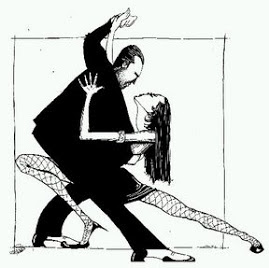 The Federal Court of Appeal of the 2nd Region (the so-called TRF) rendered a decision on 12 August 2008 confirming that the Brazilian Trademark Office (INPI) is the sole agency that is empowered to recognize the high reputation of a trademark and consequently to grant special registration encompassing all classes of products and services, including those lying outside the scope of the trademark owner's field of commercial activity.
The Federal Court of Appeal of the 2nd Region (the so-called TRF) rendered a decision on 12 August 2008 confirming that the Brazilian Trademark Office (INPI) is the sole agency that is empowered to recognize the high reputation of a trademark and consequently to grant special registration encompassing all classes of products and services, including those lying outside the scope of the trademark owner's field of commercial activity.
In giving its decision, that court declined to examine the requests for the recognition of the marks TIGRE, CASTROL and CONTINI as being of having a high degree of reputation in the Brazilian market. This decision follows the same pattern of understanding as one given in June 2008 by the same court, when it refused 'famous mark' status to the mark ABSOLUT, which is known primarily as a mark used to identify spirits. Accordingly, the INPI is designated as the only competent agency to recognize the reputation of a trademark -- not the courts -- in accordance with the consistent parameters defined by INPI in Resolution 121 of 2005, which grants a special level of protection to those trademarks which have a high degree of reputation. Special protection for such famous trademarks is obtained incidentally, when opposition or administrative nullity proceedings are initiated by the owner of the brand in question.
Accordingly, the INPI is designated as the only competent agency to recognize the reputation of a trademark -- not the courts -- in accordance with the consistent parameters defined by INPI in Resolution 121 of 2005, which grants a special level of protection to those trademarks which have a high degree of reputation. Special protection for such famous trademarks is obtained incidentally, when opposition or administrative nullity proceedings are initiated by the owner of the brand in question.
It is worth mentioning that the initial involvement of the courts relating to the recognition of fmous trademarks commenced with the Industrial Property Law (Law no. 9,279/96), this being on account of the absence of any administrative procedure for such special protection.
The TRF of the 2nd Region has now made it clear that it will no longer consider matters relating to this sort of protection. Nevertheless, this decision has left unresolved the existing problems deriving from the impossibility of obtaining protection for trademarks with a high degree of reputation outside the opposition and administrative nullity proceedings. Owners of such trademarks have been emphasizing the fact that few infringers seek registration at INPI. This particular case poses difficulties in enforcing these trademarks in court against such infringers, since reputation must first be recognized by the INPI. Accordingly, on account of these omissions, this court decision has been criticized by scholars and academics.
This item was written by José Carlos Vaz e Dias PhD/LLM Kent (jose.carlos@diblasi.com.br)
Monday 25 August 2008
Court limits grant of special protection to highly reputed mark in Brazil
Post a Comment











![[Nuevo libro] Ley Federal de Protección a la Propiedad Industrial comentada por AMPPI](https://blogger.googleusercontent.com/img/b/R29vZ2xl/AVvXsEg3r-BhqtSWMnCSTS1yp64_EUvxe0z-y7XXKOUcYpUrsnN3CI5sGkVKGdkhrCEXx4FXnp1LeZEQfrpXypLmLoMd7s7qfixS1383NjHxi-8Rf8UpLCZiaZ8mrY4AFxxVLXssYs6N4L-OTomTUwyG7rCC76ASCC3AZiBqlJYjIeQXvqo4evPFt_9Ny7SRbk8/s72-c/LFPPI%20%20Tirant.jpg)

